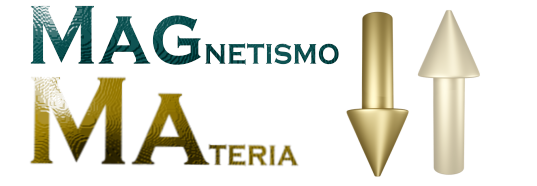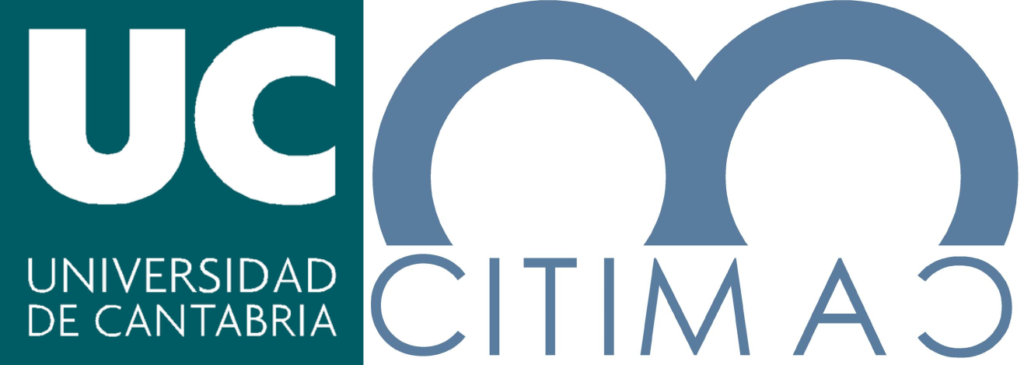Full professors
LUIS FERNANDEZ BARQUIN (Head of the group)
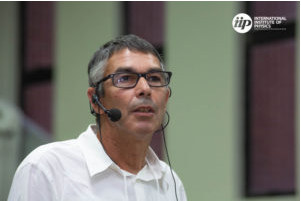
Luis Fernández Barquín is full professor of Condensed Matter Physics at the University of Cantabria since 2014 and the present Head of the Group of Magnetism of the Matter at University of Cantabria. He has performed stays at the Technical University of Denmark (Denmark), and Inst. Laue-Langevin (France). His post doctoral activity included a long-stay at the CMMP group of the University College London (United Kingdom). He is a regular user of Large Facilities (X-ray, neutrons, etc.), especially those of Neutron Scattering (RAL-ISIS, UK), (ILL, France), LLB (France), PSI (Switzerland), among others. During this time he has published more than 150 articles with around 2000 citations, and presented continuously communications in different conferences. So far he has supervised 6 doctoral thesis and MSc, etc. Nowadays, he is focused on the analysis of magnetic disorder in different systems, but mainly containing nanoparticles, and their influence in biomedical applications

Jesús Rodríguez Fernández (León, 1960) received his degree in Physics in 1982 by the University of Cantabria and obtained his PhD in 1987. Since 2008, he has been a Full Professor of Condensed Matter Physics at the University of Cantabria, serving as Head of the Department of Earth Sciences and Condensed Matter Physics from 2012 to 2020.
His research has focused on the study of the magnetic, transport, and thermodynamic properties of novel rare-earth intermetallic compounds and transition metals, as well as the application of neutron scattering techniques to the study of materials. In recent years, he has expanded his work to include magnetic ionic liquids and nanometric systems. Additionally, he has been a pioneer in the implementation of a magnetic measurement system under pressure in Spain. His research activity has been mainly experimental, being co-founder of the Magnetism of Matter Laboratory at the University of Cantabria.
He has been a visiting professor at Birkbeck College, University of London (for one year), and at Kyushu University in Japan (for two months), where he was awarded a fellowship by the Japan Society for the Promotion of Science. He has participated in more than 45 experiments at large European neutron scattering and synchrotron radiation facilities. Additionally, he has led five research projects under the National Materials Plan, published over 220 articles in international journals (h-index = 27), and accumulated more than 2,800 citations. He has supervised numerous Final Degree and Master Degree Projects and Doctoral Thesis. In the field of technology transfer, he has collaborated with companies such as B3Cable, Gamesa-Siemens, Teka, Equipos Nucleares, Gerdau-Sidenor, and Newtesol.
Senior Associate Professor
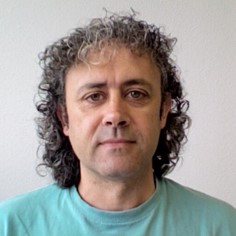
My research activities have consistently been situated within the field of materials science, primarily centered around magnetism, with a particular emphasis on the utilization of large neutron and synchrotron facilities. I initiated my work by delving into the fundamental investigation of anomalous effects in rare-earth and actinide intermetallics during my PhD thesis. Subsequently, during my tenure at the European Synchrotron Radiation Facility (ESRF) under a Marie Curie fellowship, I actively participated in the assembly and commissioningof the ID19 beamline. This involved conducting systematic experiments on X-ray topography and fine-tuning the instrument to facilitate the inaugural experiments on phase-contrast X-ray imaging. This technique notably enhanced X-ray tomography, particularly in the case of magnetite.
Upon returning to the University of Cantabria, my focus remained on the study of strongly correlated electron systems, particularly from a foundational scientific perspective. This research theme evolved, leading to a collaborative effort with fellow researchers in our university’s magnetism group, who possessed extensive expertise in examining small particles based on transition metals. Together, we embarked on a joint exploration centered on the behavior of small particles based on rare-earth intermetallics. Simultaneously, I engaged in the standardization and examination of the properties of iron oxide nanoparticles, specifically their production using magnetotactic bacteria. Additionally, I played a role in projects offering magnetic services to local companies. One noteworthy collaboration initiated in 1997 with Sidenor-Reinosa involved characterizing the magnetic permeability of a segment of their production. Other companies I collaborated with include Teka Industrial, Moehs Ibérica, Servimaps SIG, Cantarey Reinosa, Flejes Especiales, SEG Automotive, and Newtesol SL.
Associate Professor
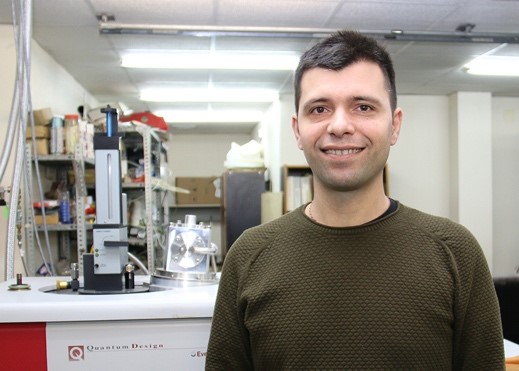
Manuel de Pedro del Valle is Associated Professor in Condensed Matter Physics (August 2015-present) in the Ciencias de la Tierra y Física de la Materia Condensada department. He has performed his PhD Thesis in the University of the Vask Country (2009) in metal insulators. He is a regular user of Large Facilities, with more than 30 experiments, especially those of Neutron Scattering (RAL-ISIS, UK), (ILL, France), LLB (France), among others. During this time he has published more than 60 articles with around 1150 citations, and presented continuously communications in different conferences (3 invited). He has supervised 4 doctoral thesis. Besides, he supervised 20 final degree and 8 Master proyects. Since 2010, his main research topics have been based on physical-chemical studies of magnetic ionic liquids, and magnetic nanoparticles, with stays in foreign centers, Universidade Federal do Rio Grande do Sul (Brasil) and University of Nottingham (UK), dedicated to sustainable catalysis. Currently he is merging these investigations to development magnetically recoverable nanocatalysts based on nanoparticles and paramagnetic Ionic Liquid for the glycolysis of plastic waste and ferroelectric materials. He has collaborated in 7 Research Projects: EU-FP7 (2) Spanish CICYT (2), in 8 Technological Transfer Projects: Spanish (7) EU (1). He also actively collaborated in the excellence network funded by MINECO and European proyects like COST. His lecturing activity is mainly focus in Solid State Physics, Experimental Techniques, Magnetic Materials, and Chemistry (8 years, 200 hours/year).
Associate Professor

Dr. Javier Alonso received his degree in Physics in 2005 by the University of Basque Country (UPV/EHU). He earned his PhD in Materials Science at the UPV/EHU in 2010, and then he joined the Basque Center for Materials Applications and Nanostructures (BCMaterials) as a research fellow. After 3 years, he earned a postdoctoral fellowship by Ikerbasque – Basque Foundation for Science, and he worked as postdoctoral fellow at the University of South Florida, USA (2014-2016) in topics related to magnetic nanoparticles for biomedical applications, especially magnetic hyperthermia for cancer treatment. Finally, he moved back to Spain, and in 2017 he joined the University of Cantabria where he presently works as Assistant Professor. Nowadays, he is co-PI of a national Research Project focused on tuning the magnetic properties of magnetotatic bacteria for cancer therapies (PID2020-115704RB-C3).
Associate Professor
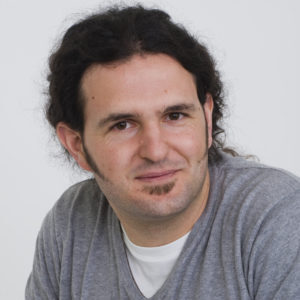
Dr. César Moreno received his degree in Fundamental Physics in 2005 by the University of Cantabria. He earned his Ph.D in Material Physics at the Institute of Materials Science of Barcelona (ICMAB) in 2010 and he moved as postdoctoral researcher at the Nano-engineering research center at the Polytechnic University of Catalonia (CRNE-UPC). After two years, he was awarded with a tenure track position (ICYS) at the National Institute of Materials Science (NIMS) in Tsukuba-Japan, and he was also promoted as permanent researcher after two evaluations and the application for the permanent position. After nearly 3 years living in Japan, he then moved back to Barcelona under a Marie Curie fellowship at ICN2. There, his work focused in the atomically precise synthesis and advanced characterization of low-dimensional carbon-based materials by means of bottom-up methods for applications in nanoelectronics, biomedicine sensors and advanced filtration. In 2021, he joined Universidad de Cantabria as a Ramon y Cajal Senior Research Fellow, and in 2024 he promoted as Associate Professor.
In 2018 he was awarded with the Molecule of the Year by the C&EN of the American Chemical Society and in 2019 with the Spanish Vanguard of Science award and the Distinguished Research Award by the Spanish National Research Council (CSIC).
Associate Professor
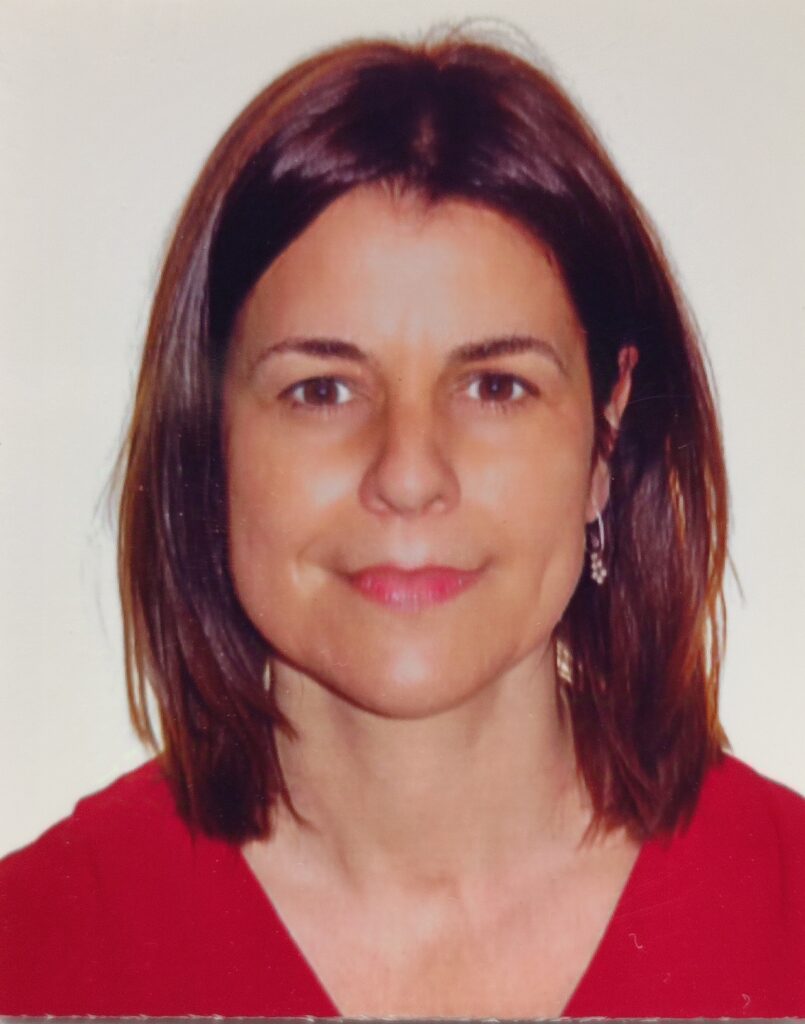
Physics degree and PhD in Physics at University of Cantabria (UC, 2005).
My PhD work focused on the experimental study of chemical pressure effects on magnetic, structural and thermal properties of metallic systems with strongly electron correlations, with an FPU Grant (Spanish MEC) at CITIMAC Department. This period allowed me to get experience both in methods of preparation and characterization (magnetic, structural, thermal) of bulk materials. I became familiar with very low temperature techniques and with the use of Large Facilities
(LFs): neutron diffraction and muon spin spectroscopy. The postdoctoral period 2006-2007 at Cavendish Laboratory (Cambridge) was funded by Spanish postdoctoral MEC Grant. My research activity moved towards the study of exotic phenomena that appear in metallic materials on the threshold of magnetism. There, I learnt on electrical transport and magnetic properties of bulk metals under extreme conditions (very low temperatures and high hydrostatic pressure). In 2008 I joined the Magnetism of Solids group at ICMA (CSIC-UZ) as a JAE-doc postdoctoral researcher. My research interest lied in studying low dimensional nanostructures for advanced applications in electronic devices. This main line involved the analysis of the magnetotransport properties of micro- and nano-structures by means of micro and nanolithography techniques. My stay at ICMA allowed me to get experience in nanostructured materials such as thin films, in methods of growth and characterization.
In 2011, I joined the Group of Excellence “Magnetism in nanostructures and their applications- MAGNA” of the Government of Aragon. From 2010-2024, I served as PDI at the Centro Universitario de la Defensa Zaragoza, a public institution affiliated with the University of Zaragoza. In this role, I taught Physics I, Physics II and Mechanics in the Industrial Organization Engineering degree (Univ. Zaragoza) to future officers of the Spanish Army.
Currently, my research focuses on two main research lines: i) Multifunctional thin-film oxides for applications in nanoelectronics, and ii) Complex magnetic states in bulk magnetic and nanostructured materials with potential technological applications. My experimental work requires a regular assistance to LFs (neutron diffraction, muon spin rotation/relaxation).
Postdoctoral Fellow
Palmerina González-Izquierdo
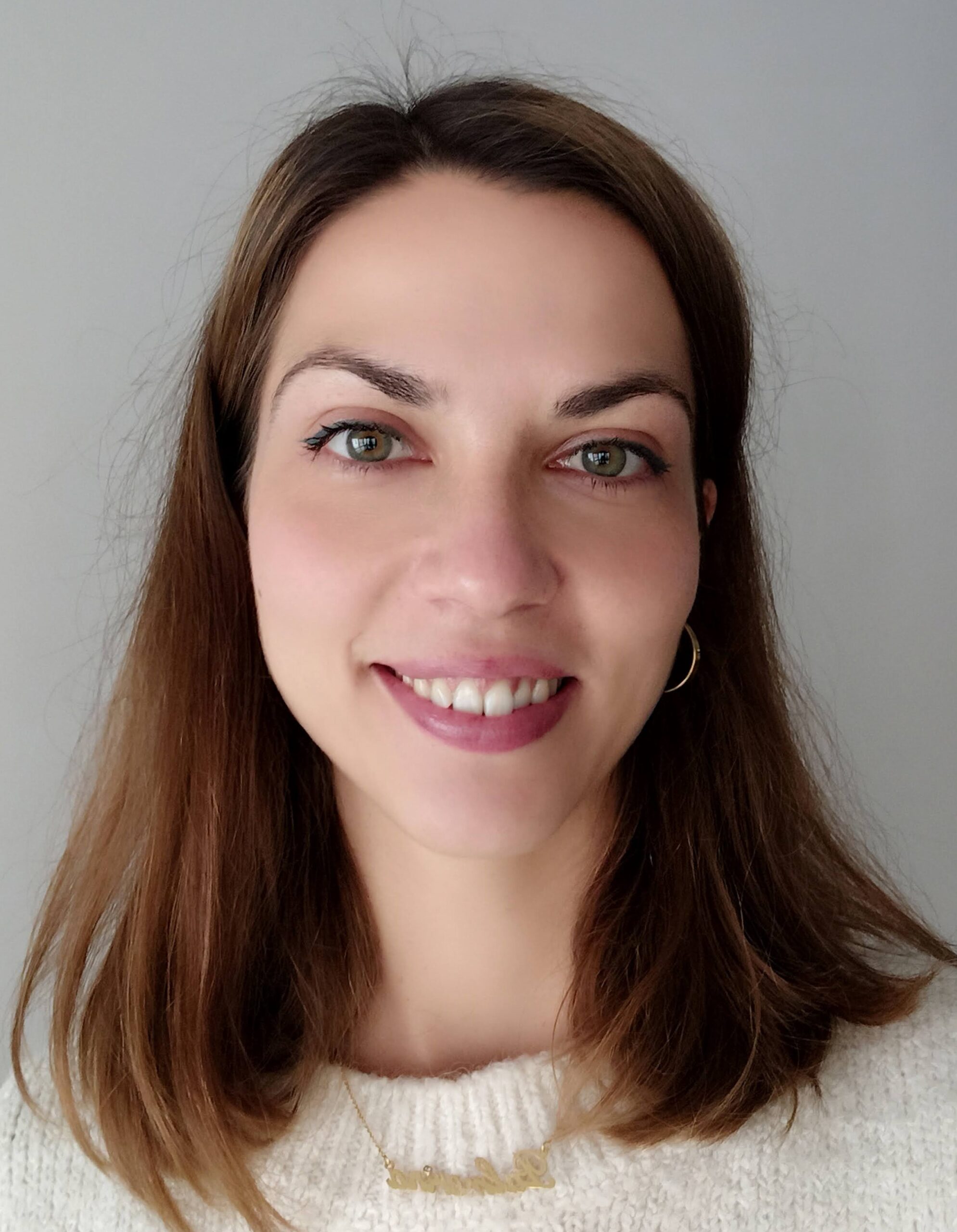
Dr. Palmerina González-Izquierdo obtained her Bachelor’s degree in Fundamental Physics from the UC in 2016 and a Master’s degree in New Materials in 2017 from UC-UPV/EHU, conducting research at the Institut Laue-Langevin (ILL) in France on magnetic ionic liquids (MILs). She continued this research and earned her international Ph.D. in Science and Technology from UC in 2021, focusing on synthesis and characterization of ferroelectric-magnetic materials, receiving the “Xavier Solans -Bruker” Award and the AFC Doctorate Award.
Dr. González-Izquierdo then worked for two years as a postdoctoral researcher at CEA-Leti in Grenoble, France, specializing in semiconductor materials, particularly GaN, for LED applications and power electronics. Currently, she is a postdoctoral researcher at UC, exploring graphene-magnetic organometallic hybrids for quantum technologies and spintronics using Scanning Tunneling Microscopy (STM).
FPI Predoctoral Fellow
Miguel Barquin Lanza
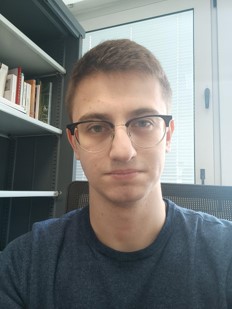
Miguel Barquín Lanza (Torrelavega, 2000) received his bachelor’s degree in Fundamental Physics from the University of Cantabria in 2022. In his final year, he obtained a collaborative fellowship at the QuIPRE department. Then, he moved to the University Autonomous of Madrid to study the master’s degree in Advanced Materials, Nanotechnology, and Photonics offered in that institution. During this period, he obtained a JAE Intro ICU fellowship at the Material Science Institute of Madrid. He is currently developing his PhD thesis with an FPI fellowship on synthesis of graphene nanostructures and their atomic characterization.
Emeritus Full Professor

Profesor J. C. Gómez Sal (Alcalá de Henares 1948), creador del grupo de investigación en Magnetismo en la Universidad de Cantabria. Después de realizar sus estudios de licenciatura en la Universidad Complutense se trasladó al prestigioso laboratorio de magnetismo CNRS en Grenoble, dirigido por L.Neel, (Premio Nobel de Física 1970) obteniendo el título de Doctor en magnetismo, bajo la dirección de R.Lemaire y D.Gignoux en el ámbito de intermetálicos de tierras raras. En el tribunal de su tesis participaron Louis Néel (presidente) y el profesor Salvador Velayos. Posteriormente se traslada a Santander y obtiene el Doctorado en Ciencias Físicas por la Universidad Complutense en 1976, siendo ponente el Profesor Velayos y crea un grupo de investigación en Magnetismo en la joven Universidad de Cantabria. Su actividad científica le ha permitido publicar más de 200 artículos y dirigir 7 tesis doctorales. Además ha sido IP regularmente en proyectos nacionales, regionales y europeos y participado en la gestión de la actividad científica internacional en Magnetismo en diversos comités inter/nacionales. Posteriormente impulsó la actividad científica en la UC siendo Vicerrector de Investigación desde 2004 hasta 2012. Su actividad académica culminó al ser elegido Rector de la U. Cantabria, dirigiendo los pasos de la institución entre 2012 y 2016. Hasta 2022 continuó como Profesor Emérito de la Universidad de Cantabria.
Former members

Elizabeth M Jefremovas (Santander, 1994) received her B.S. degree in Fundamental Physics from the Universidad de Cantabria in 2017, and her MSc. degree in Nanophysics and Advanced Materials from the Universidad Complutense de Madrid in 2018. She earned her Ph.D. in Science and Technology in 2021 at the Universidad the Cantabria under the Concepción Arenal Fellowship (Gob. Cantabria-U. Cantabria). Her research was focused on the spin dynamics in magnetic nanoparticles, including rare earth(4f)-based and iron oxide (magnetite, maghemite) compounds, being the latter specially devoted to the study of magnetite-based bacterial magnetosomes.
In 2022, she was awarded a Alexander von Humboldt Postdoctoral Fellowship to search for 3D topological spin textures in collaboration with the groups of Prof. Dr. Mathias Kläui and Prof. Dr. Jairo Sinova at the Johannes Gutenberg Mainz University.
Personal webpage for updates: www.emjefremovas.com
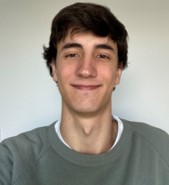
José Ignacio Fernández Gómez (Toledo, 2001) is a Bachelor student in Physics at the University of Cantabria. In his final degree year (2022-2023), he obtained a collaboration grant from the Spanish Ministery of Culture, Education and Sports to develop a research project in collaboration with the Magnetism of the Matter research group. The project will study the modifications of the magnetic properties when intermetallic alloys in the form RX2 (R=4f, X=3d) are reduced to the nanoscale. This research project is supervissed by Professor Dr. Luis Fernández Barquín and Dr. Elizabeth Martín Jefremovas. Undergraduate student “Beca de colaboración”
Ruben Perez Aguirre (Margarita Salas Postdoctoral Fellow)
